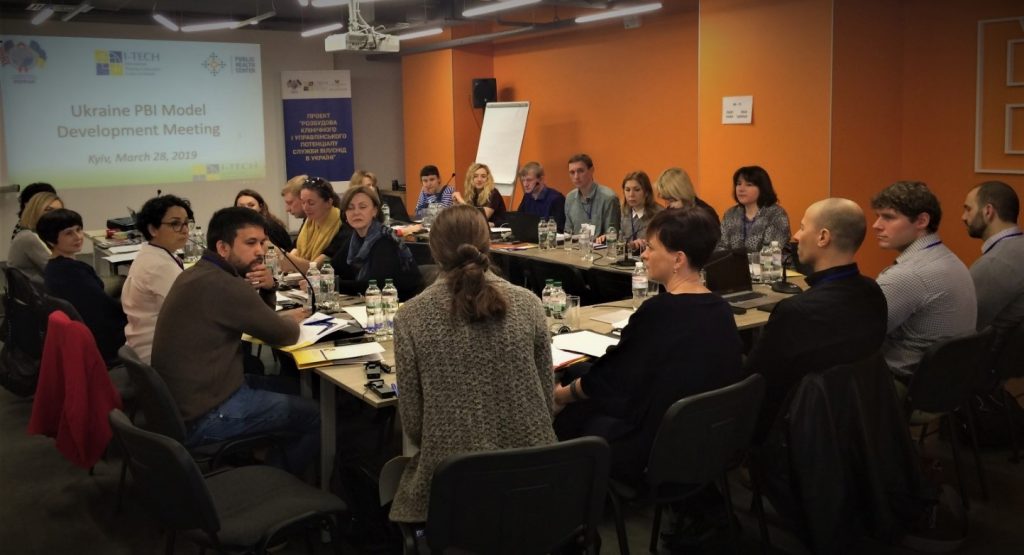
In response to the need to quickly revitalize efforts to reach targets in Ukraine, CDC Ukraine has asked International Training and Education Center for Health (I-TECH) to support a performance-based incentive (PBI) model.
On March 28, 2019, I-TECH facilitated a high-level stakeholder workshop centered on PBI evidence and “best practices.” Participants from the U.S. Centers for Disease Control and Prevention (CDC) in Ukraine and the Public Health Center (PHC) of the Ministry of Health of Ukraine, and I-TECH gathered to discuss options for adapting proven methodologies to Ukraine’s HIV services.
PHC launched the model in December 2018 at five pilot sites across the country. In the pilot, monetary incentives were paid to individual doctors at the facilities to double efforts toward initiating new patients on ART.
PHC plans to expand the model to all 12 priority regions in the country. On the heels of COP ’19 discussions in South Africa, CDC Ukraine is looking for additional areas of the HIV cascade to which PBI could be applied to reach the FY2020 targets set by the U.S. Office of the Global AIDS Coordinator (OGAC).
The March meeting and the preceding preparatory meetings provided catalytic opportunities for identifying additional HIV services–including index partner testing, linkage to care, and loss-to-follow-up search–that could potentially benefit from the PBI model; discussing lessons learned from other PBI global initiatives; and utilizing evidence-based practices to design well-conceived and context-driven programs.
Marianne Holec, Senior Program Manager for I-TECH Zimbabwe’s voluntary medical male circumcision program; Efison Dhodho, Results-based Financing Health Specialist from the Programs Coordination Unit of the Ministry of Health of Zimbabwe; and Charbel El Bcheraoui, PhD, Assistant Professor at the Institute for Health Metrics and Evaluation (IHME) were keynote speakers at the event.
These working meetings resulted in meaningful exchanges between the guest speakers and Ukrainian experts about the successes (e.g., an increase in short-term achievement of targets and the opportunity to identify and target largest areas of need) and challenges (e.g., workplace friction, dissatisfaction with incentives, lack of teamwork, and reduced quality of care) of PBI implementation globally and in Ukraine to date.
Meeting participants appreciated the practical advice given by the guest speakers on designing effective, intentional, and sustainable PBI models for the longer term for HIV services. Experts advised developing a well-designed program that is adapted to local context; starting at a few sites and try different strategies to see what works best; gathering input from the providers as to what will work best; building in health competition between sites; and having a strong M&E framework.
With input from local stakeholders and international experts, I-TECH Ukraine has accepted the challenge of incorporating the key outcomes from the series of PBI meetings to structure the Ukrainian PBI model for HIV services. This narrative will include an outline of additional technical assistance required around its implementation.